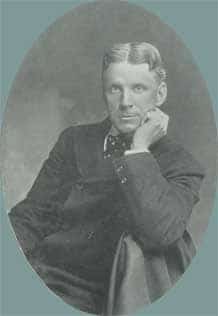Only A Presbyterian For A Short While.
It was on this day, January 20, 1812, that the Rev. John Nelson Abeel died. John was born in New York City in 1768, the son of Colonel James Abeel. He attended the College of New Jersey (now Princeton University) and graduated there in 1787. Remaining at Princeton, he served as a tutor for two years, and then briefly began to study Law before deciding to pursue a call to the ministry. He studied theology privately, receiving guidance from both Dr. John Witherspoon, then president of the College, and Dr. John H. Livingston, a Dutch Reformed pastor.
In 1793, while serving as librarian at Princeton, Abeel found time to manage studies at the New Brunswick Theological Seminary and was licensed to preach by the Classis of New York. Beginning his years of ministry in Philadelphia in 1794, he served in a yoked assistant pastor role, serving concurrently at both the Arch Street and Old Pine Presbyterian churches. His time there was brief and in 1795 Rev. Abeel accepted a call to serve the Collegiate Dutch Reformed Church in New York City, and he continued in that pulpit until his death. It is also noted that Harvard University conferred the honorary Doctor of Divinity degree upon Reverend Abeel in 1804. Placing a high esteem on education, Rev. Abeel also served as a Trustee for both Columbia College and for Queen’s College (Rutger’s).
The Rev. Dr. Samuel Miller was also serving as a pastor in New York City in the 1790’s, and he knew Abeel well. Upon Rev. Abeel’s death, Miller provided a worthy tribute to a departed brother, and this portion of his eulogy is particularly noteworthy:
But the greatest glory of his character, as a Minister of the Gospel, was his ardent and eminent piety. This was uniform, prominent, and habitual. In every situation, public or private; in the pulpit or the prayer meeting; in the chamber of disease or the social circle; it was manifest that he walked with God, and that his great concern was to lead souls to Christ, and to minister to the spiritual good of all. His religion was personal, cordial, and practical; not merely official. It was evident to all who conversed with him, or who listened to his conversation, that his great object was, like his Master, to “go about doing good.”
Words to Live By:
Isn’t that what we want for all our pastors, and for ourselves as well? To exhibit an ardent and eminent piety, that it would be evident that we walk with God, and that our great concern would be to see others come to a saving faith in Christ Jesus our Lord?
For Further Study:
Two archival collections were located for Rev. Abeel. The Presbyterian Historical Society has preserved a small collection of a few sermons, and the New Jersey Historical Society has a slightly larger collection of items concerning both Rev. Abeel and his son Gustavus. The New York Public Library has preserved a portrait of Rev. Abeel, which can be viewed here. Information on Rev. Abeel’s grave site can be viewed here.
Note: Our Through the Scriptures and Through the Standards sections have now been replaced by RSS feeds which appear at the top of right-hand column.

